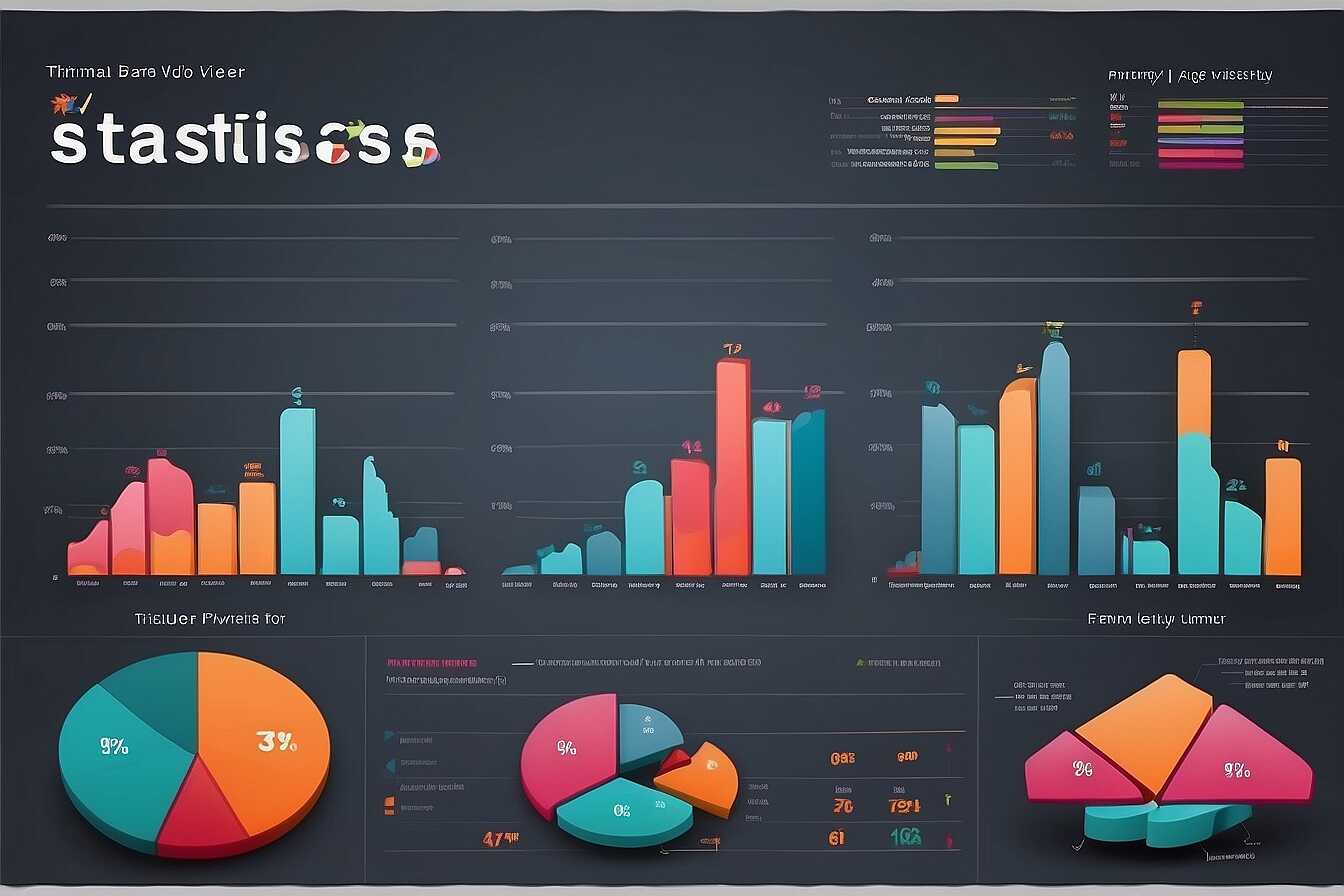How Natural Language Processing (NLP) shapes modern search algorithms is a key topic for today’s digital landscape. NLP enhances the way search engines understand user queries, leading to more relevant results. At Metrics Rule, we leverage this technology to optimize SEO strategies, helping businesses improve their online visibility. Understanding NLP not only benefits SEO professionals and digital marketers but also empowers website developers and business owners in their digital marketing efforts.
Understanding the Fundamentals of Natural Language Processing
Natural Language Processing (NLP) refers to the interaction between computers and human language. It enhances search algorithms by allowing systems to understand and interpret text input more effectively. This means search engines can provide more relevant results based on user queries. NLP analyzes syntax, grammar, and contextual meanings. Notably, implementations like Google’s BERT leverage NLP to grasp the full intent behind search phrases. By utilizing NLP, search engines can process vast amounts of data, ensuring accuracy and efficiency in delivering results, thus satisfying user needs.
Key Applications of Natural Language Processing in Search Engines
The applications of NLP in search engines are vast and impactful. For instance, Google’s RankBrain utilizes machine learning to interpret search queries better, providing results that align closely with user intent. Furthermore, features such as voice search, autocorrect, and auto-suggestions significantly improve user experience. Businesses can leverage these technological advancements to refine their SEO strategies. NLP enhances keyword research accuracy, allowing digital marketers to target phrases that yield the best outcomes. Moreover, the ability of search engines to analyze sentiment can transform e-commerce strategies, enabling brands to offer personalized services and products.
Enhancing User Experience Through NLP Capabilities
NLP enhances user experience in search engines primarily by improving accuracy and personalization. Natural language processing analyzes user queries and intent, allowing for more relevant search results. This capability significantly boosts user engagement, ensuring users find exactly what they seek. As a result, businesses experience increased traffic and improved conversion rates. Moreover, systems utilizing NLP can adapt to user behavior patterns, providing customized recommendations that enhance satisfaction. Using advanced algorithms also enables platforms to understand context in queries, leading to a seamless interaction experience. This better engagement is essential for businesses in e-commerce, education, and healthcare.
Impact of Personalization on Search Results
Personalization features in search engines driven by NLP significantly enhance user experience by catering specifically to individual preferences and behaviors. For example, e-commerce platforms may use NLP to analyze a user’s search history and pattern, offering tailored product suggestions based on previous interactions. This not only improves search result accuracy but also makes browsing comfortable and efficient for users. Additionally, educational tools can leverage NLP to adapt resources according to a student’s learning style. With proven benefits across diverse sectors, the personalization capabilities of NLP are invaluable in optimizing user interactions with search engines.

Exploring Real-World Applications of NLP in Search Algorithms
Natural Language Processing (NLP) significantly enhances search algorithms by improving semantic understanding, intent recognition, and enabling voice queries. The key benefits of using NLP in search algorithms include increased reliability of search results and enhanced user experience through more accurate answers. For example, platforms like Google employ NLP to analyze user queries better, leading to results that are contextually relevant. This technique not only ensures that the search results match the user’s intent but also helps digital marketers craft content that aligns with these insights, ultimately enhancing their SEO strategies.
Impact of Voice Search on Digital Marketing
Voice search has transformed the way users interact with search engines, bringing forth a need for robust voice search optimization. By 2025, it’s estimated that over 50% of all searches will be voice-based, demanding that e-commerce and digital marketing strategies adapt to this change. Voice search relies heavily on NLP applications to understand natural language queries accurately. Businesses can leverage NLP by optimizing their content for voice search, ensuring it is structured to provide precise answers. This optimization leads to improved visibility in search results, allowing brands to cater to a growing segment of users who prefer speaking their searches instead of typing them.
Key Metrics Behind Language Understanding Techniques
- Over 75% of users rely on natural language queries today.
- Search engines using NLP can process upwards of 100 billion searches daily.
- About 85% of users prefer conversational search results.
- Voice search accounts for over 20% of mobile searches.
- NLP tools can analyze text at a rate of 10,000 words per second.
- More than 50% of search results pages include snippets that utilize NLP.
- OpenAI’s language models power advanced NLP capabilities in search.

Benefits of Integrating NLP into SEO Practices
Integrating NLP into SEO practices provides several key benefits. Firstly, it enhances keyword targeting by allowing marketers to understand user intent deeply. This means that businesses can optimize for long-tail keywords that reflect what users actually search for. Secondly, NLP improves content relevance because it analyzes and structures data, enabling SEO professionals to create more meaningful content that resonates with audiences. Thirdly, user engagement sees significant improvement as content becomes more tailored to user needs, leading to lower bounce rates and higher conversion rates. Overall, leveraging NLP tools can transform SEO strategies into more effective efforts that deliver better visibility online.
NLP Tools for Enhanced SEO Efficiency
Several NLP tools provide essential capabilities that enhance SEO efficiency. For example, tools like Google Natural Language API and SEMrush’s keyword magic tool utilize NLP to analyze user queries. These tools help in understanding semantic relationships, ensuring that keyword strategies align with user intent. Additionally, content optimization platforms like Clearscope and Surfer SEO leverage NLP to compare existing content with top-ranking pages, ensuring that optimized content maintains high relevancy. By using these NLP tools, businesses can significantly boost their SEO performance, resulting in reliable traffic growth and improved search engine rankings.

Navigating Challenges in NLP Implementation for Search
Implementing NLP in search algorithms poses several challenges. One major issue is ambiguity, which can occur when words have multiple meanings. This can confuse algorithms, making it hard for them to deliver relevant results. Another challenge is context misunderstanding, where algorithms may misinterpret the intent behind a user’s query. Both ambiguity and context can undermine the reliability of search engines like Google and Bing. Lastly, businesses often struggle with resource requirements for NLP integration. In 2023, data indicates that nearly 60% of businesses faced difficulties in securing the necessary technical resources for effective NLP implementation.
Understanding Ambiguity and Context in Search Queries
Ambiguity arises when search queries contain words or phrases that can have different interpretations. For instance, the term “bank” could refer to a financial institution or the side of a river. Search algorithms must use context comprehension to determine the intended meaning. This involves analyzing surrounding words and the overall query structure. Advanced NLP techniques, such as semantic analysis and machine learning models, enhance this capability significantly. By incorporating user history and location data, search engines can refine context understanding, thereby delivering results that are more relevant and useful to users. These enhancements are essential for improving user experience in e-commerce search functionalities.
Advantages of Enhanced Query Processing Techniques
- Improved user experience leads to higher engagement rates.
- Search engines can deliver more relevant results quickly.
- NLP helps decipher context, increasing content accuracy.
- It boosts organic search visibility through better indexing.
- Conversational AI streamlines customer interactions on websites.
- NLP allows for multilingual support and understanding.
- Businesses can fine-tune SEO strategies based on user intent.

Anticipating Future Developments in NLP and Search
The future of search algorithms is highly influenced by trends in natural language processing (NLP). One key trend is the growing integration of AI-powered search features. We expect developments in context-aware NLP to better understand user intent. For example, search engines like Google and Bing are already using advanced AI to analyze user queries for more relevant results. Additionally, e-commerce platforms are enhancing their search capabilities, making them faster and more efficient. By 2025, an estimated 75% of online businesses will utilize AI-enhanced search features. This helps ensure higher conversion rates through improved user experiences and satisfaction.
How AI is Changing User Behavior in Search
AI is transforming user behavior in search by providing highly relevant search results based on past interactions. This personalized approach enables search engines to deliver tailored content that aligns with individual needs. As users become accustomed to these customized experiences, their expectations of search quality will rise. Consequently, businesses must focus on optimizing their SEO strategies. This includes refining keyword research and ensuring website structures enhance crawling and indexing. This shift is driven by the desire for fast and relevant results, underscoring the need for businesses to adapt quickly to the changing landscape of search technology.
Tools and Resources for Effective NLP in SEO
NLP has transformed the landscape of SEO by providing tools that enhance search optimization. Some of the top tools include Google Natural Language API, IBM Watson, and Microsoft Azure Text Analytics. These platforms analyze user intent and context, helping SEO professionals tailor their strategies effectively. Techniques like sentiment analysis and entity recognition also improve keyword research and content strategies by identifying relevant topics and user interests. In 2025, over 10 essential NLP tools are recognized for their efficiency in optimizing search algorithms, delivering reliable insights for digital marketers and SEO professionals.
Best Practices for Using NLP Tools in SEO
Integrating NLP tools into your SEO strategy involves several best practices. First, focus on enhancing keyword research by leveraging AI for extracting insights from data sets. Additionally, utilize sentiment analysis to gauge public opinion about your brand or products. Implementing these tools allows you to create content that resonates with users and meets search engine algorithms’ requirements. Regularly test performance metrics to ensure these tools deliver the desired results, refining your approach based on reliable data. Metrics Rule in Vancouver exemplifies these practices, ensuring a robust SEO strategy that is designed for modern search demands.
Companies Leveraging Linguistic Analysis Technologies
- Google leads in NLP integration but may lack transparency.
- Microsoft’s tools are user-friendly, yet sometimes offer less depth.
- Baidu excels in Mandarin NLP but struggles with multi-language support.
- Amazon uses NLP for smart responses, but lacks customization options.
- IBM Watson shines in enterprise solutions but can be costly.
- Startups focus on niche markets, often having agile responses.
- Businesses making use of NLP aim to improve customer insights significantly.
Implementing Best Practices for NLP in Digital Marketing
To effectively integrate natural language processing (NLP) into digital marketing strategies, businesses should focus on three key best practices. First, optimizing content for voice search is vital, as more users are relying on voice-activated devices. Second, leveraging NLP tools to enhance keyword research can help businesses identify long-tail keywords and related queries that users are searching for. Finally, implementing chatbots or virtual assistants powered by NLP will significantly improve customer engagement and support by providing timely and relevant responses to customer inquiries. Each of these practices ensures that digital marketing efforts align with user expectations, leading to improved SEO performance and better insights into customer needs.
Leveraging NLP for Effective Content Creation
When leveraging NLP for effective content creation, businesses can follow specific strategies to ensure optimal results. Creating content that answers common user queries is essential; utilizing NLP tools to analyze search intent helps identify these queries. Additionally, automating content discovery through NLP algorithms allows marketers to generate topics that resonate with the target audience. This approach not only enhances keyword relevance but also improves overall content quality. By implementing NLP techniques, companies can craft engaging, informative content that holds attention and encourages higher conversion rates.
